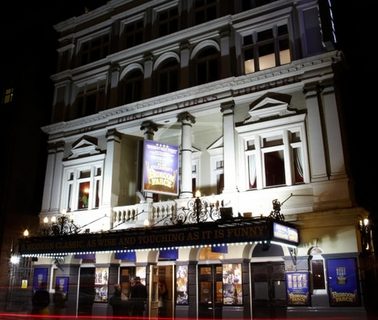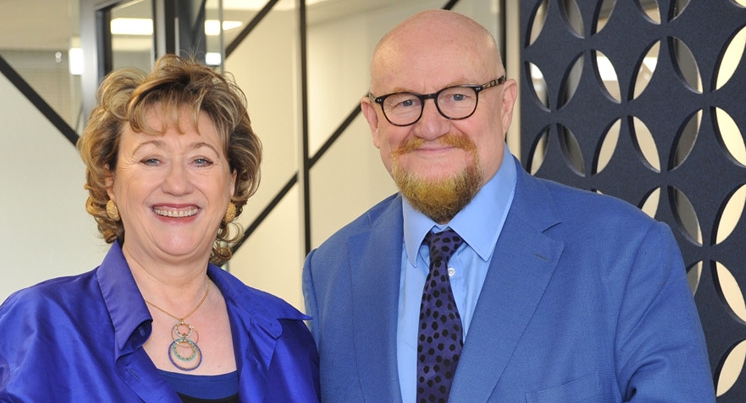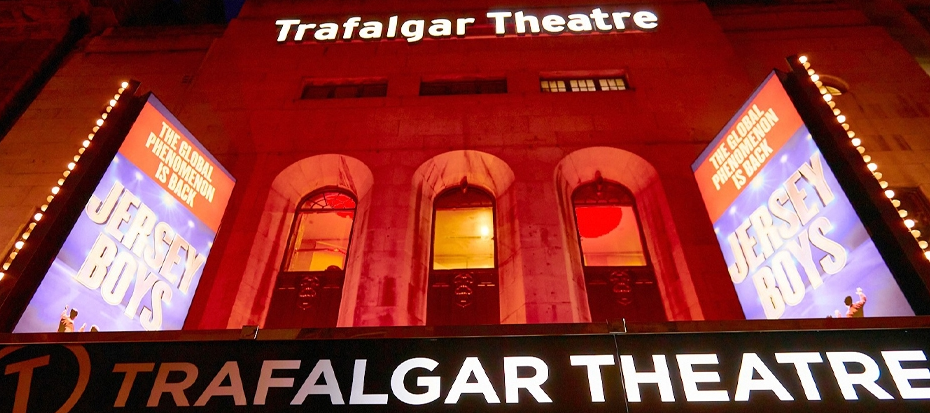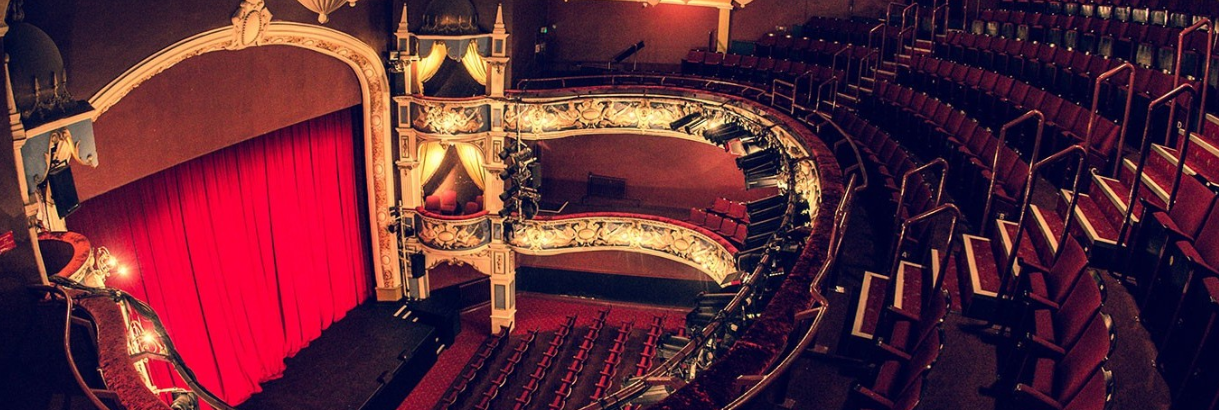There are theatres called Empire everywhere across the UK, from Liverpool and Sunderland to Hackney.
But the biggest theatrical empire in the land is ATG, which now embraces over 50 theatres around Britain, the US, Germany and now Australia. It includes a portfolio of some ten West End theatres — including such prominent playhouses and musical theatres as the Savoy, Piccadilly, Phoenix, Lyceum, Apollo Victoria and Harold Pinter Theatre, Playhouse and the Duke of York’s, as well as the bijou Fortune and Ambassadors.
It’s not exactly the most prestigious slate of addresses — those respectively belong to Andrew Lloyd Webber’s LW Theatres (including the Palladium, Drury Lane and Adelphi) and Cameron Mackintosh’s Delfont Mackintosh (including the Prince Edward, Prince of Wales, Victoria Palace, Noel Coward, Wyndham’s, Gielgud and Sondheim Theatres), while Nimax is the West End’s other major player (owning the Palace, Apollo and Lyric, amongst others).
But in terms of sheer numbers (in terms of venues and seats), ATG is the UK industry leader, also owning a host of huge regional venues from Manchester and Liverpool to Edinburgh and Bristol, plus (in a first for a UK-based company) two theatres on Broadway (the Lyric and the Hudson), some theatres beyond Broadway from Brooklyn to New Orleans and San Antonio, and developing interests in Europe and Australia.

Yet this now industrial-sized complex of theatres began as just one theatre, when ATG bought the Duke of York’s Theatre on St Martin’s Lane [pictured above] from Capital Radio in 1992, and also (in the same year) partnered with property developers to plan and manage a theatre complex inside a shopping centre that was being built in Woking.

All of this was spearheaded by husband-and-wife producer team Howard Panter and Rosemary Squire (pictured above), who were the first producers in the UK to conceive a vertical integration policy of owning the venues as well as the product that went into some of them, and also associated services like ticketing, instead of contracting them to third parties.
Constant expansion and acquisition was the name of the game, which included the group acquiring Live Nation UK’s theatre portfolio in 2009, positioning them as the largest theatre owner in Britain in terms of number of seats; all of which, of course, required financing, and led them down the private equity path.
This brought its own challenges, as private equity constantly seeks — in fact, demands — growth and a profitable return on its investment. Even before the pandemic created its own unique disruption that nobody could have anticipated, the simple fact is that theatre is always an uncertain business: no one can anticipate where or when the next hit will come from, and meanwhile the theatres need to be filled with ‘product’ that pays the rental on those venues to meet their running costs.
That’s hardly been a problem, certainly not in the West End, where there have (at least until now) always been more shows looking for homes that theatres available to house them; but the bigger the hits (and the more seats that are duly filled at each of those theatres), the bigger the returns will be, not least in ancillary incomes like more bar service and more booking fees being charged on the greater number of seats sold.
ATG further invested in taking over a group sales ticketing agency and a brand called LOVEtheatre.com. The company’s production arm, ATG Productions, provided some of those productions, though investment in production is always a more speculative business than owning bricks-and-mortar, because it is easily possible that no one will come to your shows (though obviously each show is capitalised individually from different private and public investors).
ATG, with many big musical houses to fill, has concentrated on musicals like Dirty Rotten Scoundrels, Women on the Verge of a Nervous Breakdown and 9 to 5 – the Musical, and tours of Jersey Boys and Priscilla, Queen of the Desert; but it is yet to create a global boffo box office bonanza like The Book of Mormon or Wicked.
However, group partner company Sonia Friedman Productions (SFP) has become one of the West End and Broadway’s most powerful and prolific producers, most notably with their international blockbuster Harry Potter and the Cursed Child (which recently resumed performances in Melbourne, but whose London and Broadway iterations are currently suspended).
Having built the largest theatrical empire in the UK from just one theatre in 1992, in 2016 Panter and Squire withdrew from ATG and started again, with just one venue acquired by them in their “divorce” agreement, the Trafalgar Studios (formerly the Whitehall, which they’d repurposed into two of the most uncomfortable venues, bar none, in all of London). With a suite of offices on the Strand nearby, Panter and Squire have begun to empire build all over again, under the new name Trafalgar Entertainment, which is described in a recent press release as “a premium international live entertainment business focussed on new productions and the distribution of live-streaming innovative content.”

Those interests already include, in addition to the operation of the Trafalgar Theatre (as the former Trafalgar Studios have been renamed, with the theatre’s original layout as a two-level house reinstated, so hopefully no longer the uncomfortable place it was), recently taking over the operation of Sydney’s Theatre Royal (the city’s oldest performing arts venue), Trafalgar Theatre Productions (which will stage a revival of Jersey Boys as the debut re-opening production at the Trafalgar Theatre, as well as the planned revival of Anything Goes at the Barbican), live-streaming providers Trafalgar Releasing, Stagecoach Performing Arts, London Theatre Direct, Luke Shires Marketing, Jonathan Church Theatre Productions, Chiswick Cinema and More2Screen.

And on Tuesday, it was announced that Trafalgar Entertainment are joining forces with regional theatre operator HQ — who currently operate 11 venues from Bromley and Dartford to Southend, Swindon, Crewe (Lyceum Theatre, pictured above) and Guildford.
In an interview with Dominic Cavendish, published in the Daily Telegraph on Tuesday to coincide with the announcement of the deal, Squire commented, “I think once you’re an entrepreneur, it’s in your DNA. You could describe us as serial entrepreneurs.”
As Cavendish goes on to describe and quote them,
Panter – a bearded, ebullient, somewhat larger than life figure beside his quiet, thoughtful, sometimes inscrutable spouse – points to the economic rationale behind this new venture. “We’re not being naïve. The pent-up demand for tickets to productions we’re involved with has been remarkable, given the uncertainty about when we’re coming back and how safe it’s going to be. People are saying: “I want to go out.” And we’ve been driven by this continual belief that theatre will come back.”
Theatre producers and entrepreneurs must, given the odds on their work actually succeeding, live in more on hope than experience, so are predisposed to optimism. I’d like to share theirs, as Cavendish again describes it:
We’ve been stuck in a gloom pit for so long, their talk seems to hail from a bygone time of sunlit optimism, which is where they’d like to take us. “By this time next year, hopefully we’ll be back to the good old days,” Squire says. And overseas markets, they say, are just gagging for our theatrical exports. Panter flies the flag: “We shouldn’t forget that we’re still considered the best in the world for theatre. Perhaps it’s all to do with Shakespeare but it’s held round the world that we’re really bloody good at it.”
